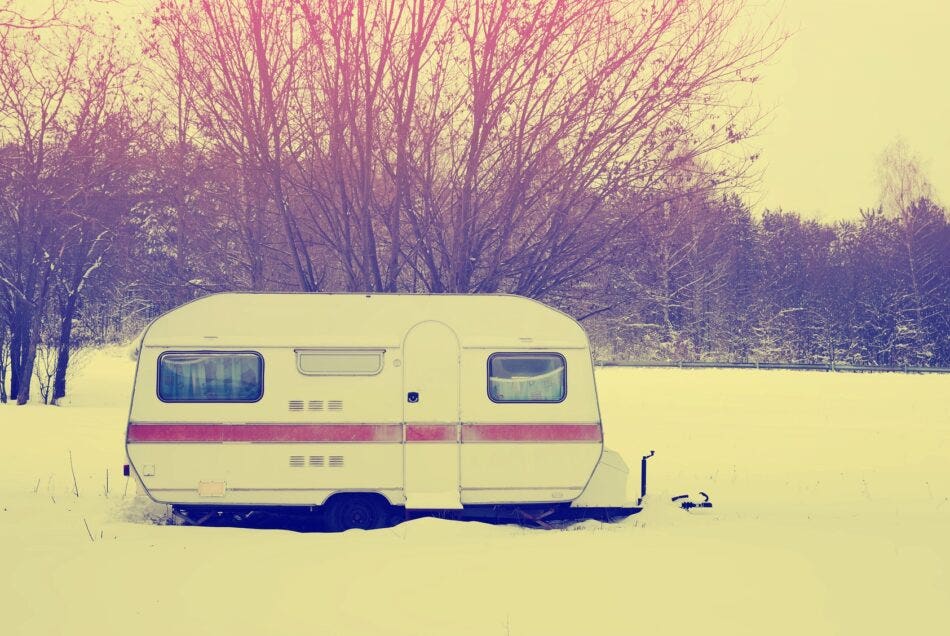When you first got your recreational vehicle you researched all the different types and models. You wrote a pro and con list and even shopped around to find the best deal for your budget. You knew exactly what extra room you’d gain or lose by adding a slide-out and even researched what type of tire chalk works best. But after a season or two of travelling in your RV during the warm summer months—and parking it in a storage facility for the winter—you begin to wonder: Can’t I just leave my travel trailer at the RV park all winter?
For those travel trailer owners that want to minimize their storage preparation by keeping the trailer parked at the RV grounds all winter think again. It may actually take more work to prepare an RV stored outside for winter.
Prevention is worth it
There’s a reason why RV owners go through the annual process of winterizing their recreational vehicles. Because they know that the old cliché—an ounce of prevention is worth a pound of cure—really does apply. By properly protecting your water system from freezing as well as making sure batteries don’t drain ventilation is protected and seals are lubricated and tight you prevent some nasty and expensive surprises in the spring.
Tips for parking an RV outside
This doesn’t mean you can’t leave your RV in the park all winter it just means you need to take extra precautions. For instance you need to make sure the vehicle doesn’t become a nest for rodents or other vermin and can’t be damaged by snow ice or vegetation.
Avoid parking your RV under trees. By parking under a tree you run the risk of a branch falling and damaging the vehicle. Even if this doesn’t happen the heavy sudden accumulation of snow (falling from overhead branches) could result in water damage as the snow melts and leaks into your trailer. To prevent this sort of damage buy a secure RV cover that’s made of breathable material. This allows air to circulate preventing mold and mildew but keeps most debris and water away from the trailer. Also park your vehicle on a slight angle. This allows the snow and water to run-off the RV and prevents water from pooling and seeping and causing damage.
To prolong the life of your trailer’s tires inflate them to the manufacturer’s recommended max cold pressure and cover the tires to protect them from the harmful ultraviolet rays. If possible place wood or some other solid flat material between the tire and the ground. This prevents flat spots on your tire which quickly reduce the lifespan of a tire.
Even though you are winterizing your trailer you still have to consider the impact of the sun. Prolonged exposure to ultraviolet rays can fade and reduce the lifespan of carpet drapes and upholstery—all expensive finishes to replace.
Should I leave it set up?
Like larger RVs with slide-outs smaller travel trailers should never be left stored outside all set up. The reasons are simple:
- You won’t be around to rescue the unit should a storm blow in and cause a heavy snow fall. Snow left to accumulate on a set-up travel trailer can actually be too much weight and serious damage the mechanism used to setup the trailer.
- You could severely reduce the lifespan of your trailer’s weather seals. Prolonged sustained exposure to wet or cold conditions can damage or crack seals particularly at freezing temperatures.
- Since damaged seals aren’t always apparent to the naked eye you may not realize that your trailer’s defence system against the elements has been compromised. These damaged seals could let in moisture causing further damage to your trailer.
So no outside storage?
While storing your travel trailer outside requires lots of preventative maintenance that doesn’t mean you shouldn’t do it. You can store your travel trailer in the RV park over winter or in your driveway as long as you’re prepared to take the steps to protect it. This includes talking to your insurance broker about your coverage for damage and theft over the winter season.

